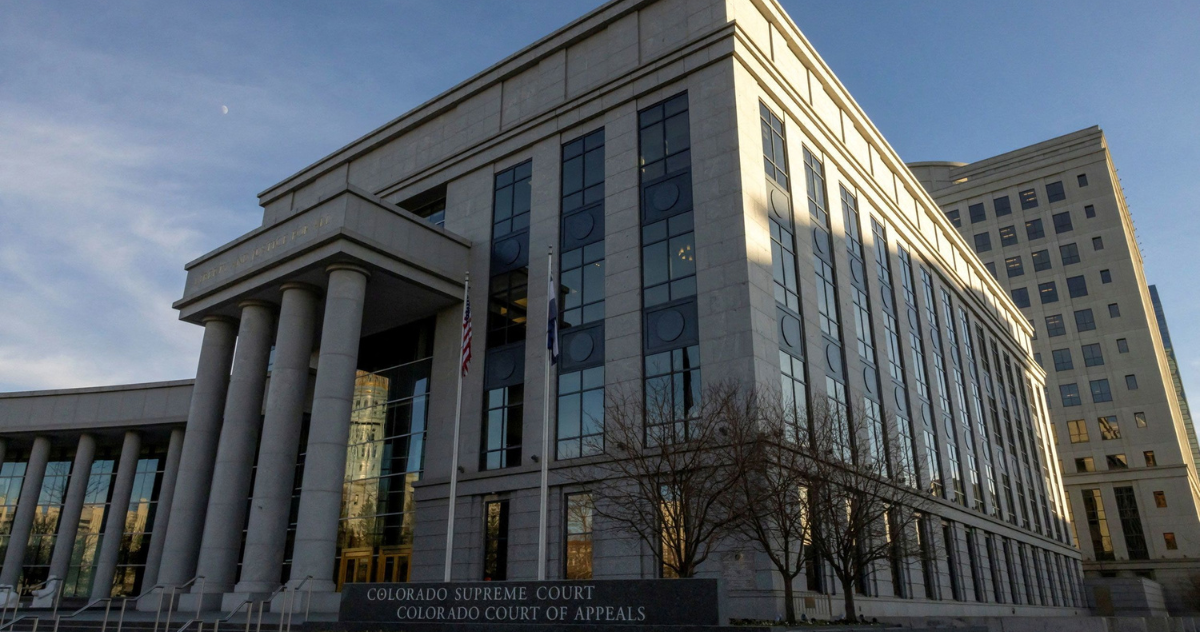USA (Washington Insider Magazine)— The FBI and law enforcement agencies have initiated investigations over informed violent threats pushed against the Colorado Supreme Court justices. Recently, the Colorado Supreme Court ruled in favour of sacking former President Donald Trump from the 2024 primary ballot. The court stated that the former president violated the 14th Amendment.
“The FBI is aware of the situation and working with local law enforcement,” FBI Public Affairs Officer Vikki Migoya expressed in a statement to CNN on Monday. “We will vigorously seek investigations of any threat or use of violence perpetrated by someone who utilises extremist views to justify their actions regardless of motivation.”
Last week, the Colorado Supreme Court ruled that Trump overstepped Section 3 of the 14th Amendment. It prohibits individuals who have “engaged” in an insurrection from seeking public office.
The names of the four current Democratic justices have occurred in many “inflammatory” posts online—a nonpartisan research institution uncovered and conveyed with CNN in a report.
“There remains a risk of lone actor or small group violence or other illegal activities in response to the ruling”.
“We are seeing significant violent language and threats being made against the Colorado justices and others perceived to be behind yesterday’s Colorado Supreme Court ruling,” Advance Democracy president Daniel J. Jones briefed NBC. “The normalisation of this type of violent rhetoric − and lack of remedial action by social media entities − is cause for significant concern.”
A report published by the organisation and acquired by NBC drafted several messages posted on pro-Trump forums, extremist websites and Truth Social.
“What do you call seven justices from the Colorado Supreme Court at the bottom of the ocean? A good start,” one post in the report stated, according to NBC.
“Kill judges. Behead judges. Roundhouse kick a judge into the concrete,” read another post.
However, according to CNN, the analysis discovered that there hadn’t been explicit threats to the justices. According to CNN, one post mentioned in the research reads, “All f— robed rats must f— hang,” in a presumed reference to the justices. Master Trooper Gary Cutler, a Colorado State Patrol spokesman, informed CNN that any threats against judges would be controlled by local law enforcement.
“You have Donald Trump, a former President of the United States, making vivid vitriolic personal attacks on prosecutors, on judges, calling them names, that adds gasoline to the fire into these chatrooms and people feel they are being called on,” CNN law enforcement analyst John Miller spoke on Monday.
“The problem is, for authorities, is sorting out the noise from who the real player is going to be, who might show up and do something. You look at the Nancy Pelosi case, where an individual showed up at her home in San Francisco, home invasion, assaulted her husband. Someone who was not on the radar screen and came out of the woodwork. So these are difficult cases.”
However, the U.S. Supreme Court will reject the Colorado Supreme Court’s historic 4-3 ruling. Significantly, It makes Trump the first presidential candidate considered ineligible for the White House. It would be under a seldom-used constitutional provision that blocks officials who have committed an “insurrection or rebellion” from maintaining office.
There is a point to note that The ruling would apply only to Colorado’s March 5 Republican primary, but it could impact Trump’s status in the state for the Nov. 5 general election.
Nonpartisan U.S. election predictors view Colorado as safely Democratic, suggesting President Joe Biden will likely hold the state regardless of Trump’s fortune.
Trump also pledged to appeal the ruling to the U.S. Supreme Court. The Colorado court stated it would slow the effect of its decision until at least Jan. 4, 2024, to allow for an appeal.
The ruling sets the scene for the Supreme Court, whose 6-3 conservative majority includes three Trump designees, to consider whether Trump can do another term as president.
The lawsuit is a test case for a broader effort to disqualify Trump from state ballots under section 3 of the 14th Amendment. It was legislated after the U.S. Civil War to keep proponents of the Confederacy from acting in the government.


























